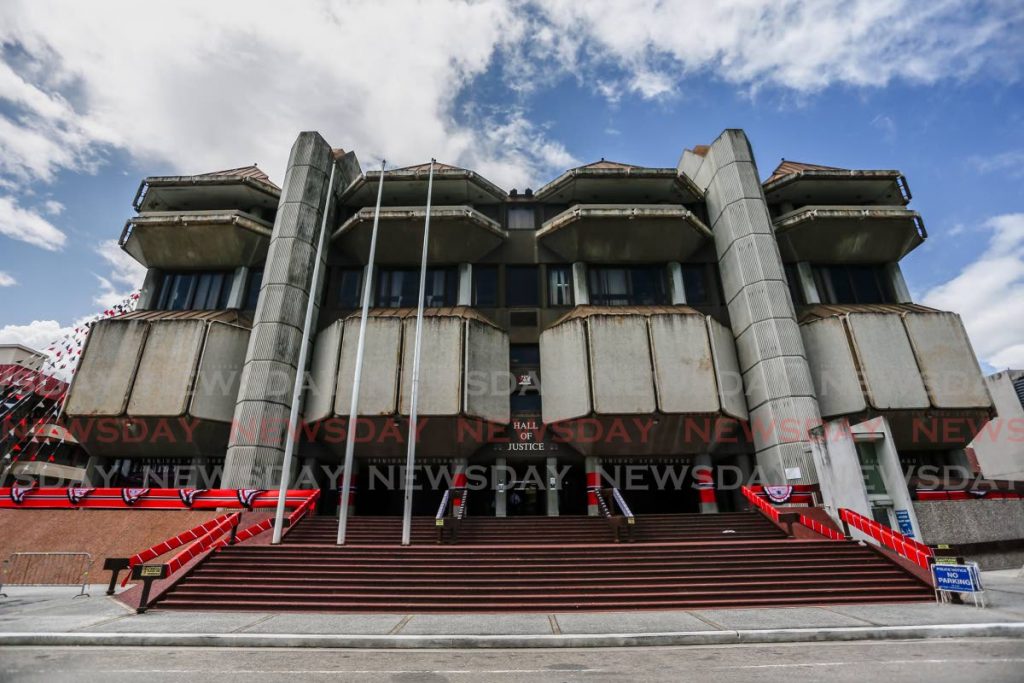Court blanks repatriation of women, children from ISIS refugee camp in Syria

A HIGH COURT judge has ruled that it cannot order the Minister of National Security to repatriate a group of 12 women and children being held at the Kurdish-run al-Hol refugee camp in northern Syria.
In ruling on Monday, Justice Joan Charles said there was neither a legislative nor a policy framework in place for repatriating nationals from conflict/war zones.
Nor does the minister have the legal power or discretion to repatriate or facilitate the repatriation of these nationals, she said.
These were the judge's findings as she dismissed a judicial review application and a constitutional claim brought by the families of 12 women and children being held at the camp.
She said domestic law could not be enforced in another state’s territory without that state’s consent, and the 12 were not under the jurisdiction of the Syrian government or any state entity, making the situation “even more complex.”
“Domestic law will not extend to matters occurring on foreign soil, over which Trinidad and Tobago have no control. The 12 persons, the subject of the claim, are detained in circumstances under which Trinidad and Tobago has no control.”
Charles said in the absence of legislation, the claim by the relatives of the 12 that their constitutional rights were being infringed could not succeed, since domestic law could not be enforced in a foreign state.
She deferred to the State and Parliament issues relating to policy, refusing to grant the declaration to compel the minister to make a decision to repatriate the 12.
Charles also pointed out that TT’s borders remained closed because of the pandemic, and none of the 12 had applied for exemption to return.
The application, filed on their behalf, said the women and children – five of whom who were born in Syria – form part of a vulnerable group because of their refugee status and were at risk of exploitation and abuse.
It said several attempts were made to have the issue of repatriation addressed since April last year.
The claimants said conditions at the camp were unsafe and unhealthy with hardly any food or water and there is an infestation of flies and under international human-rights law, the basic principle underlying voluntary repatriation was the right to return to one’s own country. The families also argued that states were duty-bound to admit their nationals and could not compel any other state to keep them.
They also pointed out that at least five countries have repatriated their citizens from the camp, including France, the US and the UK, which started repatriating children.
However, the judge said repatriating people required national-security considerations, international collaboration with foreign immigration and intelligence agencies and diplomatic relations – none of which the court had jurisdiction over.
“I also take into account the fact that the government in the process of drafting a policy framework and legislation to treat with the issues.
“This fact serves to strengthen my view that the issues fall within the purview of the Executive and that the court should accordingly defer to the Executive on these matters.”
She said she also considered that the State would be in possession of intelligence reports from foreign agencies and that verification exercises, which would include the examination of DNA, and would have to be done to determine the 12 were born in Syria to TT parents, would require the co-operation of international partners. However, none of the 12 are in camps controlled by the Syrian Government, with which the TT Government has diplomatic relations.
“On the application of international convention to the Right of Repatriation, it should be noted that treaties form no part of domestic law unless enacted by Parliament…it is only when international law/treaties have been legislated by Parliament that I can apply such law in any given case.
“The State is under no duty to intervene to protect a citizen who has suffered or is threatened with injury in a foreign state, nor is there any obligation under the refugee convention to assist refugees outside the State.”
In a release on Monday night, Attorney General Faris Al-Rawi said the court’s decision affirmed the Government’s "thrust in its determination to fight the ravages of the global pandemic whilst protecting the reputation of TT in the international intelligence community, as well as the resultant safety and security of its population.”
The families of the 12, who were ordered to pay the State’s legal costs, were represented by Elton Prescott SC, Criston Williams and Kerrina Samdeo with Nafeesa Mohammed also appearing in court. The State was represented by Reginald Armour, SC, Vanessa Gopaul, Rishi Dass and Laura Persad.

Comments
"Court blanks repatriation of women, children from ISIS refugee camp in Syria"